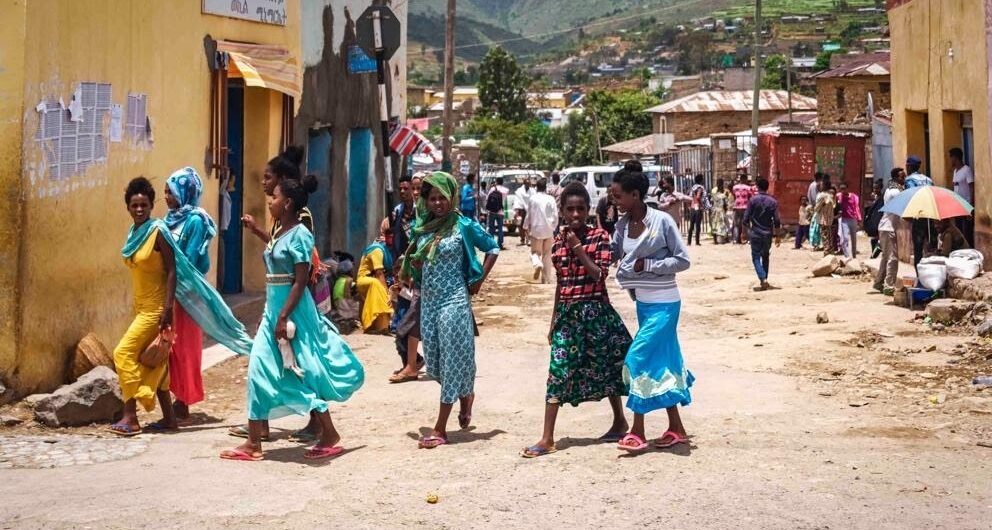The Ethiopian Human Rights Commission have alleged that Eritrean forces killed over 100 civilians in Aksum, Tigray, during a two-day massacre last November.
The alleged killings, which took place on the 28 and 29 November, have sparked fears that the short peace between the two nations will be dismissed.
The two East-African countries have a long history of conflict, dating back to 1961, when Eritrea’s war of independence began.
Eritrea have yet to voice their opinion on the report. However, when Amnesty International released their report on 26 February, which alleged that their actions ‘may amount to a crime against humanity’, the alleged crimes were disregarded by Eritrean as “fabricated.”
However, this new report from Ethiopia sheds light on a conflict that ceases to settle. The ECHR report describes images of parents being killed in front of their children. The report describes multiple sources highlighting the specific targeting of men.
The Amnesty International report described horrific scenes of ‘deliberate targeting of civilians.’ One witness from the report described what they saw:
“I saw a lot of people dead on the street. Even my uncle’s family. Six of his family members were killed.
“So many people were killed … This was in the middle of the city, not at the entrance or in surrounding villages.”
Despite the death toll, some were able to survive the alleged two-day massacre. The EHRC report recounts one survivor’s ordeal:
“On November 28, I decided to leave Aksum city and join my family in a nearby rural town.
“I had just gone past Saint Michael Church when I came upon Eritrean soldiers who were hiding inside the cemetery of the Church.
“They shot at me and hit me on the right leg and the left thigh. Another bullet hit my left arm. People who found me bleeding carried me home.
“It is only three weeks later that I decided to seek medical help in Aksum Referral Hospital.”
The Ethiopian report comes a day after the Ethiopian Prime Minister, Abiy Ahmed, admitted that Eritrean soldiers had entered the northern region of Tigray since the fracture of relations last November. He had stated to MP’s that fear of the TPLF was the main reason for the invasion. The previous months had seen denial of invasion from both sides.
Previous Nobel Peace Prize winner Ahmed, had stated on November 30 that “not a single civilian was killed.”
Tensions first erupted back on November 4, when the Tigray People’s Liberation Front successfully took charge of military bases in the region. This resulted in a military push from the central government to seize back control of the region.
The two sides had fallen out over the future role of the TPLF in government, as well as plans for the countries’ ethnic-based federal structure.
Tensions between the two countries began in 1961, with the start of Eritrea’s fight for independence from Ethiopia. The civil war lasted until 1991, with Eritrean independence officially being achieved in 1993.
However, conflict broke out once again. In 1998 tensions erupted once again, with the International Crisis Group estimating that 70,000 to 100,000 were killed during the war.
A peace treaty was signed between the two nations in 2000, but not officially implemented until 2018.
Deprose Muchena, who is Amnesty International’s director for East and Southern Africa, conveyed her dismay at the alleged latest event along a long timeline of violent conflict between the two nations:
“The evidence is compelling and points to a chilling conclusion. Ethiopian and Eritrean troops carried out multiple war crimes in their offensive to take control of Axum.
“Above and beyond that, Eritrean troops went on a rampage and systematically killed hundreds of civilians in cold blood, which appears to constitute crimes against humanity.
“This atrocity ranks among the worst documented so far in this conflict.
“Besides the soaring death toll, Axum’s residents were plunged into days of collective trauma amid violence, mourning and mass burials.”
The peace between the two nations has been short-lived. On top of this, the tensions between the Ethiopian government and the TPLF look set to add further complications to the mix.
It has since been reported by the United Nations that two refugee camps within the region of Tigray have been decimated. The perpetrators are currently unknown.
Ahmed has since claimed that Eritrea will remove its troops from the Tigray region. There has yet to be any confirmation from the Eritrean government on this matter.
Picture Credit: Rod Waddington





